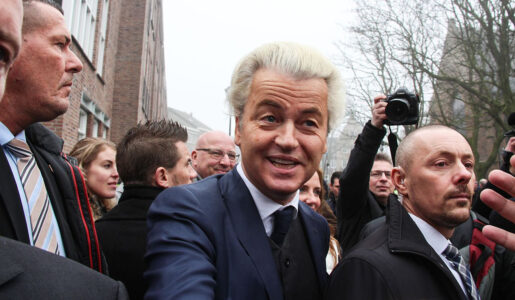Menchik in The Atlantic on Dutch Anti-Muslim Bigotry
Jeremy Menchik, Assistant Professor of International Relations at the Fredrick S. Pardee School of Global Studies at Boston University, was interviewed on the recent parliamentary elections in the Netherlands and the history of Dutch anti-Muslim bigotry.
Menchik was quoted in a March 15, 2017 article in The Atlantic entitled “When The Netherlands Had a Muslim-Majority Empire.”
From the text of the article:
Dutch anti-Muslim bigotry, however, is less novel than it seems. Only 70 years ago, the Netherlands was a majority-Muslim empire, stretching from Aceh in Northern Sumatra to the Eastern Maluku islands, 2,500 miles to the east. Its rule was often brutally intolerant. During the colonial period, the Dutch empire regularly banned its East Indies subjects—today’s Indonesians—from practicing key aspects of their faith, like making the pilgrimage to Mecca. “The polemics that come out from that period against Islam by Dutch missionaries and local Dutch officials … [are] that Islam is inconsistent with freedom, Islam is oppressive. This is the same thing Wilders is saying now,” Jeremy Menchik, a scholar of Indonesian Islam at Boston University, told me. Far from being sui generis, Geert Wilders is merely echoing his colonialist forbears.
As the Netherlands cemented its rule over the archipelago, it forged understandings with regional Muslim rulers that, generally, preserved the power of local royalty over their subjects, while giving the Dutch carte blanche to exploit Indonesian labor and natural resources to their own benefit. Unlike other colonial powers like the Spanish and Portuguese, the Dutch did not particularly prioritize converting the locals. In 1803, the governor general of the East Indies established a principle of state neutrality toward religion, meaning that, at least on paper, the state would not give special benefits or sinecures to Indonesians who converted—in essence, that Christians would not be favored. The Dutch “cared more about gold than God,” Menchik said. But Protestant missions were nonetheless established throughout the archipelago, often in regions like North Sulawesi and North Sumatra, where locals were generally not Muslim.
In general, the Dutch were stingy colonists who gave little back for the resources they took, and wanted to suppress all influences, whether Communist or Islamist, that might promote rebellion. “The Dutch were not generous to the colonies,” Menchik said. “They did not invest in railways or in education until the end of the colonial period and only then to extract more from Indonesia society,” he added. Dutch colonial rule was characterized by forced agricultural labor for the natives, and frequent, brutal suppression of rebellion.
You can read the entire article here.
Jeremy Menchik’s research interests include comparative politics, religion and politics, Southeast Asia, and the Middle East. He is also the author of Islam and Democracy in Indonesia: Tolerance Without Liberalism. At Boston University he is a member of the graduate faculty of political science and coordinates the MAIA program with specialization in Religion and International Affairs.
